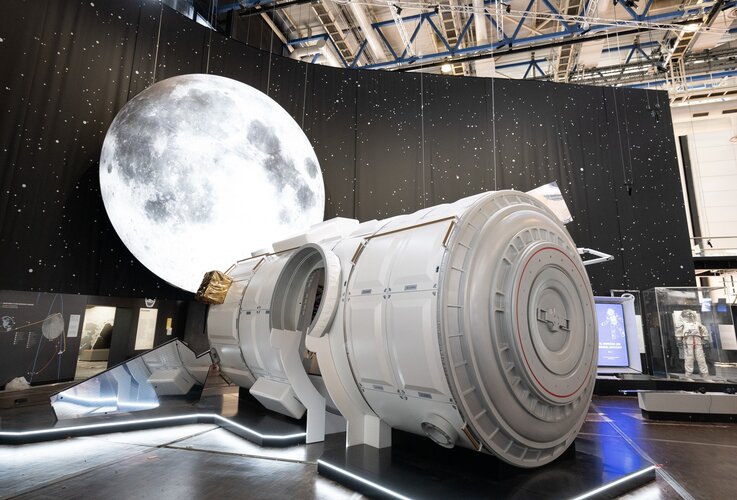
Stay
The Stay section focuses on the need for a sustainable approach to space exploration. To establish human habitats on the Moon or, in the longer term, on Mars, it is essential to develop or refine methods to make use of in situ resources, and to recycle almost infinitely the waste produced, particularly organic waste. This requires the development and implementation of technologies such as closed-loop life support systems, hydroponic agriculture and 3D printing. ESA and other space agencies are working on these research areas to enable the self-sufficiency of human exploration missions, a need that is becoming more crucial as humanity plans to explore ever farther from Earth.
Questions
The last section of the exhibition, Questions, encourages visitors to take a step back and reflect on questions, such as: what are the political issues of space exploration? Why should we continue to send humans to space? Can space exploration reduce its ecological footprint? After the visit, visitors have the option to further explore these topics in depth by browsing the ESA website and in particular ESA’s strategic roadmap, Agenda 2025.
“We are very satisfied with this collaboration,” - said Didier Schmitt, expert in Human and Robotic Exploration at ESA. “The Mission Spatiale exhibition focuses on science and technology, two cornerstones of space exploration. Designed to be accessible to children aged 8 and over, the next generation of explorers and scientists, this exhibition highlights Europe’s ambitions in space, a vision that requires accelerating the development of European technologies to maintain our competitive edge. The enthusiasm of the public for space topics has been palpable since the opening day of the exhibition, which is already breaking all attendance records!”
Useful information
The Mission Spatiale exhibition is a permanent exhibition at the Cité des sciences et de l’industrie, located at 30 Avenue Corentin Carou in Paris. La Cité des sciences et de l’industrie is open from 10:00 am to 18:00 every day, (except Mondays), and from 10:00 to 19:00 on Sunday. More information on cite-sciences.



